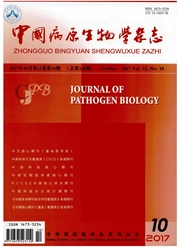

 中文摘要:
中文摘要:
登革热是由节肢动物传播的病毒性疾病,由4个血清型的登革病毒(DENV1-4)引起,通过伊蚊传播。登革热已从一种散发疾病演变为主要公共卫生问题之一。过去几十年,有关登革病毒学、发病机制、免疫学、发展抗病药物、疫苗和新媒介控制策略的研究已出现高潮,对于登革热的控制和预防可能有正面影响。本文就上述内容做出综述。
 英文摘要:
英文摘要:
Dengue is an arthropod-borne viral disease caused by the four dengue virus serotypes(DENV 1-4)that are transmitted by Aedes mosquitoes.Dengue has evolved from a sporadic disease to a major public health problem with substantial social and economic impacts due to aspects like increased geographical spread,the number of cases identified,and the severity of disease.The past few decades have witnessed an upsurge in research on transmission dynamics,viral evolution and fitness,new classifications of dengue cases,diagnosis of dengue,the association between the dengue virus and the immune response(including viral maturation,the innate immune response,and viral evasion strategies),the pathogenesis of dengue,host risk factors for dengue hemorrhagic fever/dengue shock syndrome,development of dengue vaccines,and formulation of new strategies for vector control.This research may have a positive effect on dengue control and prevention.This review summarizes the latest research on dengue
 同期刊论文项目
同期刊论文项目
 同项目期刊论文
同项目期刊论文
 期刊信息
期刊信息
